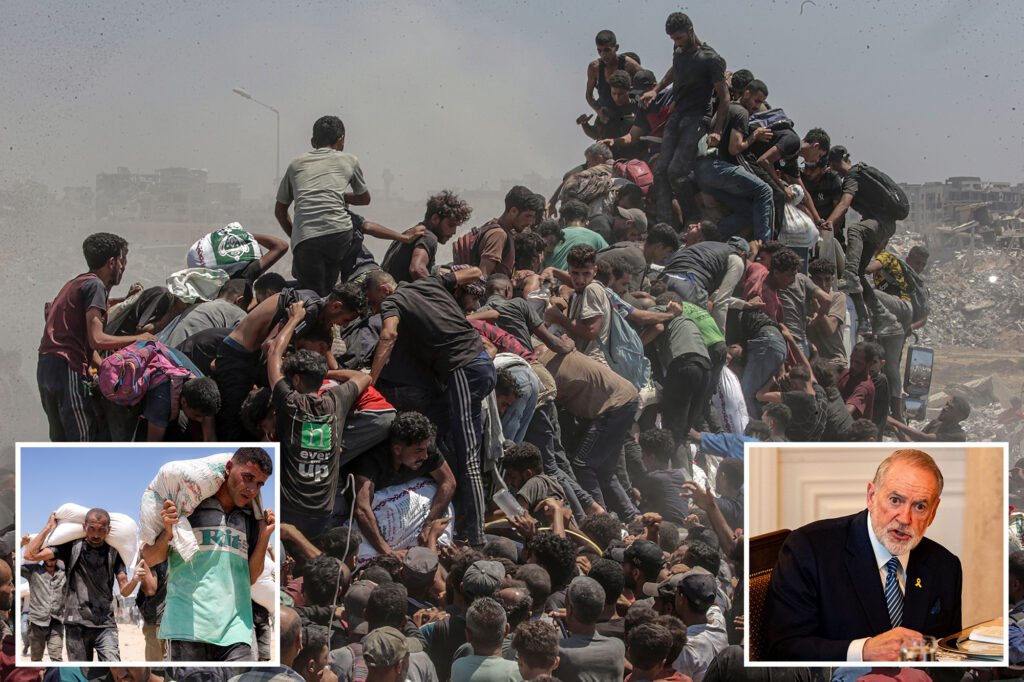
U.S. Ambassador to Israel, Mike Huckabee, expressed sharp criticism on Sunday towards the United Nations, The New York Times, and Hamas, attributing the turmoil surrounding humanitarian aid delivery in Gaza to their actions. Huckabee described the situation as a “complete balagan,” a Hebrew term for chaos, emphasizing that the misinformation propagated by these entities jeopardizes crucial aid initiatives and exacerbates the ongoing humanitarian crisis.
In a post on social media platform X, Huckabee stated, “Are the UN, NY Times, and Hamas all happy now? I’m sure Hamas is. Their lies and propaganda destroyed the cease-fire deal, tried to discredit the safe and functioning GHF effort, emboldened Hamas, and resulted in this complete balagan! Saddest of all, hostage families are left with prolonged grief.” His remarks reflect a growing frustration among Israeli officials, who argue that accusations aimed at Israel and the American Gaza Humanitarian Foundation (GHF) hinder aid efforts.
Israeli Official Responses to Aid Concerns
As tensions mount, videos circulating on social media have shown U.N.-led aid convoys potentially endangering civilians, while reports indicate that American-managed distribution centers remain secure. Itamar Ben-Gvir, Israel’s National Security Minister, amplified these concerns, stating, “The ‘humanitarian’ aid equals sustaining the enemy. Prime minister, stop spitting in the face of our fighters!”
In response to the criticism, the Israel Defense Forces (IDF) released comprehensive statements defending their role in coordinating humanitarian aid. Brig. Gen. Effie Defrin emphasized, “Israel is not blocking humanitarian aid. We are facilitating its entry every single day.” He detailed that over 250 trucks of aid had been delivered to Gaza in the previous week, alongside new airdrops and “humanitarian pauses” implemented to allow aid access in both northern and southern Gaza.
Military officials further asserted their collaboration with the United Arab Emirates and Jordan, reporting that 28 airdropped packages were delivered to Gaza on Sunday to counter claims of deliberate starvation. According to an update from COGAT, Israel’s military body responsible for humanitarian coordination, more than 120 aid trucks were collected and distributed across Gaza on Sunday by the U.N. and international relief organizations.
Efforts to Provide Aid Amidst Increased Tensions
COGAT also noted that an additional 180 trucks entered Gaza on Sunday, awaiting collection for distribution, as hundreds remained in queues for U.N. pickup. The agency emphasized that effective collection efforts by U.N. agencies and aid organizations are vital for improving the flow of life-saving assistance to those in dire need.
The GHF also reported significant contributions, distributing over 20,000 food aid boxes at three locations, along with fresh vegetable pilot shipments. During a visit to the Kerem Shalom Crossing on Sunday, GHF interim executive director John Acree commended the commitment of aid teams and urged all organizations to prioritize humanitarian efforts, stating, “Help the people of Gaza or make way for those who will.” The GHF claims to have provided nearly 95 million meals to date.
Israeli lawmaker Evgeny Sova expressed the need for Israel to clarify its position to the United States, Qatar, Egypt, and European nations, expressing that Israel aims to end the conflict soon and transfer responsibility for Gaza to these entities. He emphasized that Israel would not allow its territory to facilitate aid delivery, asserting, “If they feel responsible for the Gazans, then the pressure must be on Hamas and not on Israel.”
As humanitarian efforts continue amid escalating tensions, the situation in Gaza remains precarious, highlighting the challenges of navigating aid delivery in a conflict-ridden region.







